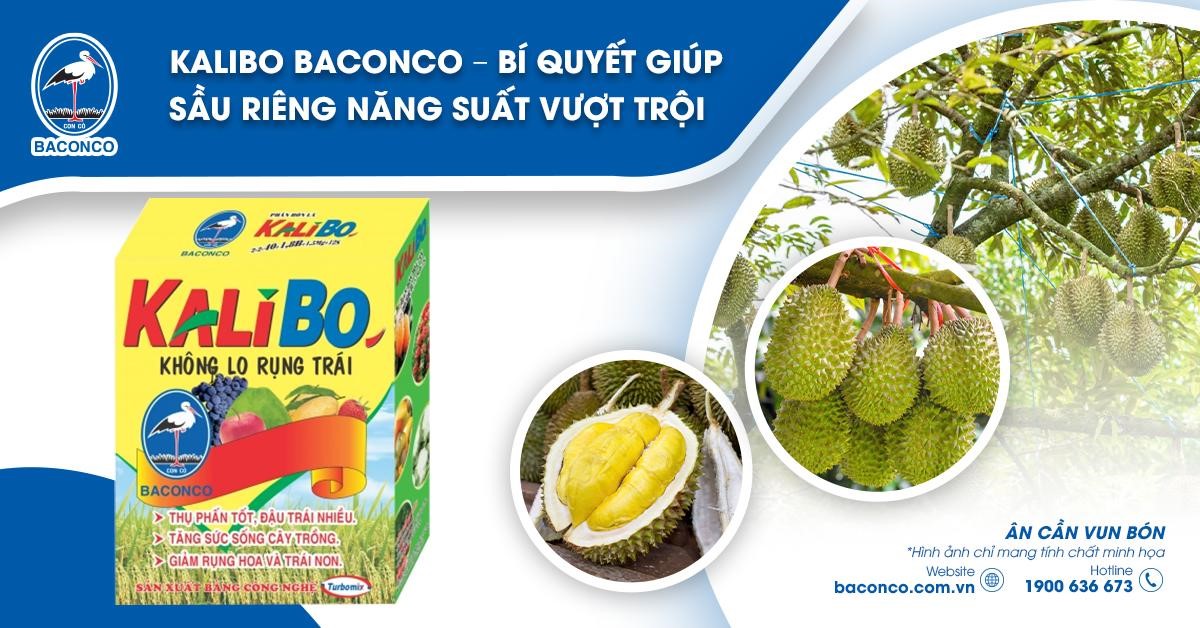Tips for Growing Durian Off-Season to Achieve High Quality and Good Yield
03 Dec 2024

Don’t miss out on the tips to help off-season durian achieve maximum yield. Learn now for a bountiful harvest with Baconco!
Common challenges in off-season durian cultivation
Fruit drop after pollination
Fruit loss after pistil removal is a very common situation for off-season durians
The first issue often encountered in off-season durian is “fruit drop after blooming.” Some signs of this condition include:
- Some flowers have not fully pollinated or have started to develop buds, and young fruits begin to drop gradually, with symptoms appearing on the tree such as aphid infestations, pest attacks causing leaf shaking, insufficient new shoots, and thin, small leaves.
- A significant number of young fruits drop, with some being fibrous and heavy, resulting in a mass drop leaving only 2 or 3 fruits on the branch.
- Young fruits dry out, drop gradually, and have a white layer on them.
The main causes may be due to excess water, nutrient competition (the tree is growing new shoots), or weak pollen due to a deficiency of the micronutrient Boron (B).
Fruit hardening phenomenon
Another common issue in off-season durian is the “fruit hardening phenomenon.” This refers to the durian flesh becoming hard, not ripening, or burning, which reduces product quality. There are two main causes of this phenomenon:
Firstly, due to excess Nitrogen or Chlorine toxicity from fertilizers:
- Nitrogen: Nitrogen promotes leaf and branch growth; if applied excessively, especially close to harvest, the plant will focus its nutrients on developing stems and leaves instead of nurturing the fruit. This results in durian flesh ripening slowly, becoming hard, and lacking sweetness.
- Chlorine toxicity: Many fertilizers contain high levels of Chlorine. Chlorine inhibits the sugar metabolism in the fruit, causing the flesh to become fibrous, scorched, and reducing quality and flavor. Durian is very sensitive to Chlorine, so using fertilizers containing Chlorine must be done with great caution.
Secondly, excess water can also lead to fibrous flesh:
- Near harvest: Durian requires a light drought period to stimulate natural ripening. If the plant has excess water during this stage, the durian flesh will be diluted, bland, less sweet, and prone to fibrousness. Excess water also reduces the dry matter content in the flesh, affecting its texture and characteristic flavor.
- Impact on respiration: Excess water reduces the oxygen levels in the soil, affecting the respiration process of the plant's roots. This diminishes the ability to absorb nutrients, impacting the accumulation of sugars and the quality of durian flesh.
Ideal solutions for off-season durian cultivation from Baconco
Measures for fruit drop after blooming
Baconco's KALIBO helps solve fruit loss effectively
For the issue of fruit drop after blooming, the KALIBO 2-2-40+1.8B+1.5Mg+12S product from Baconco is the perfect choice for farmers:
- High potassium content helps the plant regulate water levels, preventing excess water that causes fruit drop.
- The Bo and Magnesium components in KALIBO 2-2-40+1.8B+1.5Mg+12S also help improve pollen health and enhance blooming capability.
- Minimizes fruit drop and ensures the firmness of the fruit stem.
The KALIBO 2-2-40+1.8B+1.5Mg+12S product does not contain Chlorine, does not cause leaf burn, and is very suitable for use on durian trees.
Measures for the phenomenon of fruit hardening
When farmers apply excess Nitrogen or suffer from Chlorine toxicity from fertilizers, they need to use fertilizers with moderate Nitrogen content and 100% Potassium Sulfate, such as KALIBO 2-2-40+1.8B+1.5Mg+12S, NPK CON CÒ 15-15-15+9S+0.05B, NPK CON CÒ 7-7-14+12S+7Ca+0.045B, and NPK CON CÒ 12-11-18+1.4Ca+5S+0.1Zn+0.1B.
Solutions from Baconco to common problems during the off-season durian season
In cases where crops are overwatered, leading to hardening of the flesh, farmers should reduce watering 15-20 days before harvest, combined with the use of KALIBO 2-2-40+1.8B+1.5Mg with a high Potassium content to regulate the water content in the fruit, preventing the hardening issue.
With the KALIBO 2-2-40+1.8B+1.5Mg product from Baconco, durian growers can easily improve the yield and quality of their crops. KALIBO 2-2-40+1.8B+1.5Mg not only helps the plants grow better but also gives farmers more peace of mind during cultivation, minimizing common risks encountered in the care process.
Growing durian out of season requires a good understanding of cultivation techniques, pest management, and especially nutrition for the plants. Baconco hopes that the tips shared in this article will help farmers feel more confident in cultivating off-season durian, leading to bountiful harvests and sustainable success.
Views
1629
